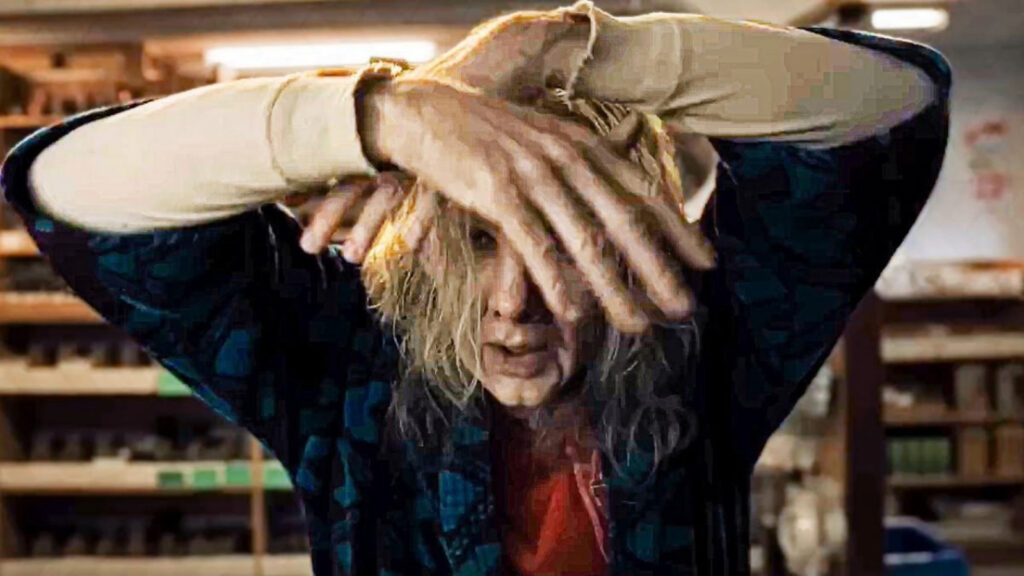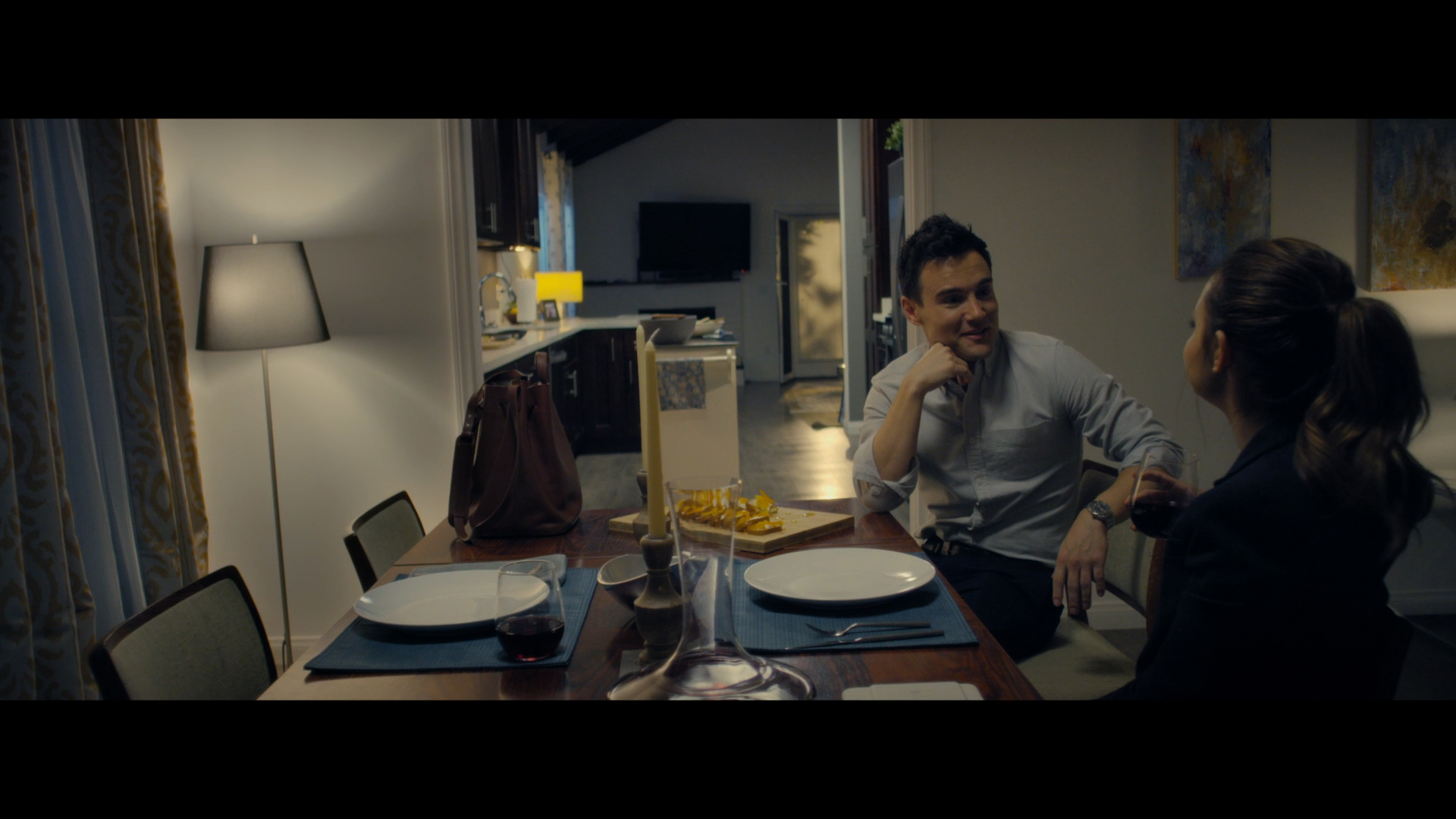
A pair of FBI agents (Maika Monroe and Blair Underwood) are in pursuit of an elusive serial killer (Nicolas Cage) whose murders have spanned decades. The killer’s only ties to his victims are coded notes signed with the name “Longlegs” that are left at the scenes of his crimes. No other evidence proves his involvement, as the victims are always families who appear to have been murdered by the father of the household, who always finishes the deed by killing himself.
Longlegs is one of the most effective horror efforts in recent memory. It’s by no means a typical horror film, as it refuses to rely on gore or jump scares to deliver its fright. Instead, the film relies on a searing sense of dread that dominates the film’s carefully constructed and highly disturbing atmosphere. Longlegs grabs hold of its audience through an uneasy, unsettling mood that embeds itself in the subconscious and lingers.
Longlegs is an artful horror film somewhat along the lines of David Lynch or Stanley Kubrick. That being said, comparisons to other work or filmmakers don’t do the film justice, as a large part of its success is owed to its own unmatched uniqueness. Longlegs wouldn’t be as effective and disturbing as it is if it didn’t explore unknown and unprecedented tones that beget very specific feelings of terror.
Writer/director Osgood Perkins is a challengingly smart filmmaker whose previous work is fascinating and visually arresting, though not always successful. I am a fairly large fan of his debut feature, 2015’s The Blackcoat’s Daughter (though it admittedly took me two viewings to conclude that I like it). I was not particularly enthralled by 2016’s I Am the Pretty Thing That Lives in the House or by 2020’s Gretel & Hansel—though I do admire their individualistic presentations. Those two films may have shown heaps of talent and originality, but they were a bit too opaque with their storytelling logic to fully include or engross their audience. Though Longlegs’ similarly risky style could have had similar results, it ultimately manages to pay off greatly. Longlegs is Perkins’ first film in which his complexly off-kilter sensibilities manage to result in something truly great that can also be accessible to and understood by a large audience.
Maika Monroe is flawlessly excellent in the lead role, exhibiting a low-key intensity, an integrity-laden demeanor, and a believably human vulnerability throughout. She is, simply put, a thinking person’s heroine. Blair Underwood is subtle and shaded with his portrayal of Monroe’s inherently decent but noticeably jaded older partner. Alicia Witt is quietly mesmerizing as Monroe’s mysteriously withholding mother.
Nicolas Cage is utterly transformative and freakish as the titular character. The film wisely withholds the full reveal of his grotesque make-up for a large portion of the film, highly aiding the chilling boldness of his work. It is a wild, weird, and endlessly creepy performance that pushes Cage’s singularly surreal acting style to its limits. That being said, I was more enamored by the extraordinary creativity of and commitment to his work than I was frightened by it. I actually caught myself smiling at his acting at times because I was thrilled to see Cage doing his Cage thing so freely and brazenly. However, this probably won’t have the same effect on younger viewers who aren’t as familiar with Cage as I am (he’s been my favorite actor for over thirty years). I can’t say his casting is in any way a fault to the film because I truly can’t (and, more importantly, don’t want to) imagine anyone else in the role. Cage, like any well-known performer, simply brings baggage he can’t control to any film he acts in, and it’s merely an observation rather than a criticism to state as much.
Longlegs is a horror movie unlike any other. It gets under your skin by way of intelligence, extraordinary craftsmanship, and extreme ingenuity. It may not abruptly startle you or make you shield your eyes the way horror movies are expected to, but it will make a home in your head, affect your dreams, and quietly whisper in your ear for some time after it is over.
GRADE: A



